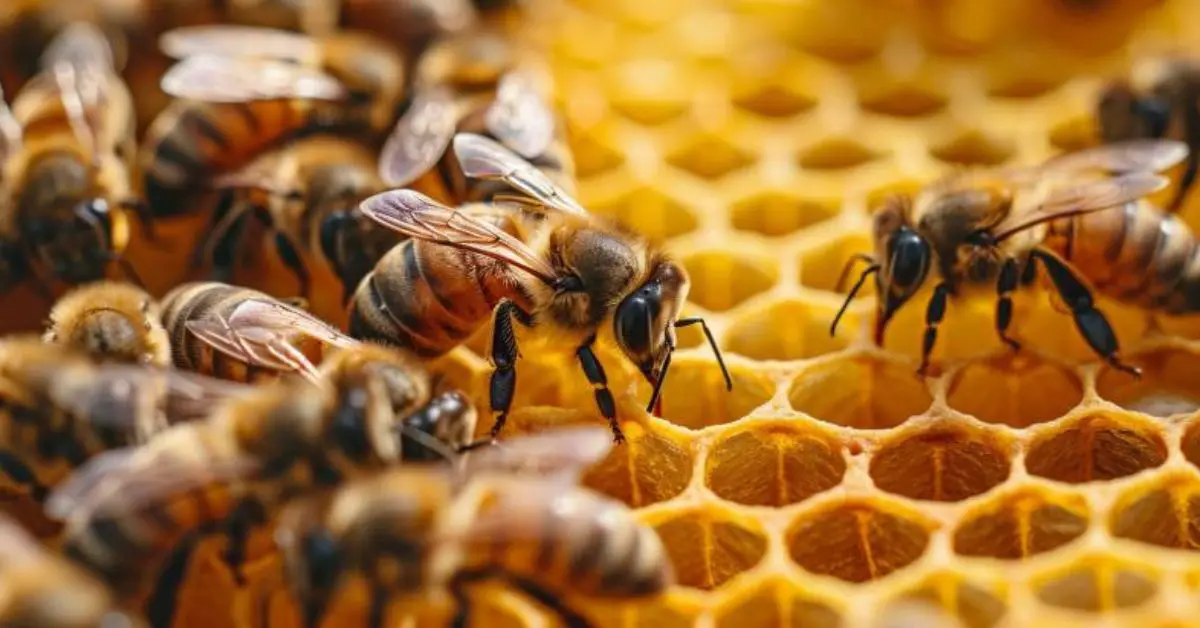In the Bible, bees are mentioned a few times, primarily in the context of their ability to produce honey. Bees symbolize both the sweetness and the potential danger in life, as their honey is desirable but they can also sting. Notably, Samson’s riddle about a lion and bees illustrates this dual nature. The Bible uses the imagery of bees to convey messages about wisdom, sustenance, and the balance of life’s sweet and challenging aspects. Bees, in their small but significant way, contribute to the broader biblical narrative of understanding God’s creation and the lessons it holds.
Curious about what the Bible says regarding bees? It’s more than just honey and stings. Explore the symbolic and literal references to bees in the scriptures.
What Does the Bible Say About Bees?
While bees are not a central theme in the Bible, their presence and the honey they produce are used to illustrate various lessons and principles. These small creatures have a significant role in biblical symbolism.
The most direct references to bees in the Bible are related to their production of honey. Honey is often used as a symbol of abundance, sweetness, and pleasure. In several instances, the land of Israel is described as a land flowing with milk and honey, indicating its fertility and God’s provision.
But bees also symbolize the duality of nature – they can provide sweet honey but also have a sting. This duality is seen in Samson’s riddle where he talks about finding honey in the carcass of a lion, highlighting the unexpected places and ways in which blessings can come, sometimes from challenging or dangerous situations.
Bees and honey also symbolize wisdom and knowledge in the Bible. There are references to the sweetness of words being like honey, suggesting that wisdom and good teachings are nourishing and desirable.
Moreover, the industrious nature of bees is something that can be inferred from biblical references to honey. Their diligence in producing honey can be seen as a metaphor for the virtues of hard work and persistence.
The Bible also hints at the protective nature of bees. In some passages, bees are mentioned as part of God’s creation that can act as a deterrent or form of protection, illustrating the diverse ways God can use nature for His purposes.
In summary, while the Bible does not extensively discuss bees, the references to them and their honey carry significant symbolic meanings. They represent abundance, wisdom, the duality of life’s experiences, and the value of hard work, all of which contribute to the larger biblical message of understanding and appreciating God’s creation.
Bible Verses About Bees
- Judges 14:8-9 – “Sometime later, when he went back to marry her, he turned aside to look at the lion’s carcass, and in it, he saw a swarm of bees and some honey.” This is part of Samson’s riddle, symbolizing finding sweetness in unexpected or challenging places.
- Psalm 19:10 – “They are more precious than gold, than much pure gold; they are sweeter than honey, than honey from the honeycomb.” This verse uses honey as a metaphor for the sweetness and value of God’s teachings.
- Proverbs 16:24 – “Gracious words are a honeycomb, sweet to the soul and healing to the bones.” Here, the Bible compares kind words to honey, emphasizing their pleasant and healing nature.
- Proverbs 24:13-14 – “Eat honey, my son, for it is good; honey from the comb is sweet to your taste. Know also that wisdom is like honey for you: if you find it, there is a future hope for you, and your hope will not be cut off.” This proverb connects honey with wisdom, suggesting that just as honey is sweet and desirable, so is wisdom.
- Exodus 3:8 – “So I have come down to rescue them from the hand of the Egyptians and to bring them up out of that land into a good and spacious land, a land flowing with milk and honey.” The phrase “land flowing with milk and honey” is repeatedly used to describe the Promised Land, symbolizing its richness and abundance.
- Song of Solomon 4:11 – “Your lips drop sweetness as the honeycomb, my bride; milk and honey are under your tongue.” In this poetic book, honey symbolizes sweetness and delight in the context of love and relationship.
- Matthew 3:4 – “John’s clothes were made of camel’s hair, and he had a leather belt around his waist. His food was locusts and wild honey.” This verse describes John the Baptist’s simple and natural lifestyle, which included eating wild honey.
- Leviticus 20:24 – “But I said to you, ‘You will possess their land; I will give it to you as an inheritance, a land flowing with milk and honey.’ I am the Lord your God, who has set you apart from the nations.” Again, the land promised to the Israelites is described as flowing with milk and honey, signifying God’s blessing and provision.
- Isaiah 7:15 – “He will be eating curds and honey when he knows enough to reject the wrong and choose the right.” This prophecy about Immanuel (a name for Jesus) uses honey to represent nourishment and purity.
- Ezekiel 3:3 – “Then he said to me, ‘Son of man, eat this scroll I am giving you and fill your stomach with it.’ So I ate it, and it tasted as sweet as honey in my mouth.” Ezekiel’s experience of eating a scroll that tasted like honey symbolizes the sweetness of accepting God’s word.
The Bible references bees and honey to convey messages about the sweetness of God’s teachings, the richness of His blessings, and the dual nature of life’s experiences. These symbols serve to illustrate the abundance, wisdom, and the paradoxical aspects of life. Bees, though mentioned briefly, contribute to the overarching themes of provision, wisdom, and the complexity of God’s creation in the biblical narrative.


